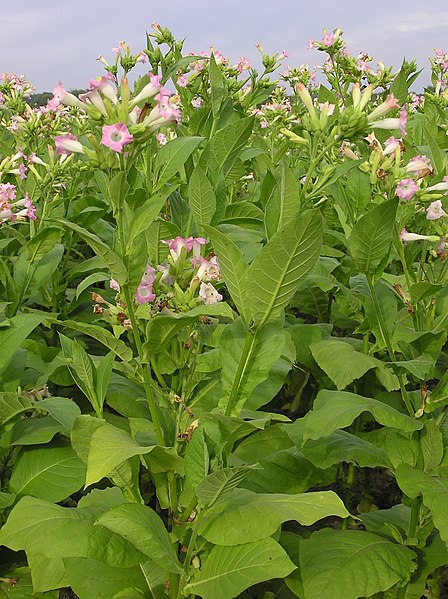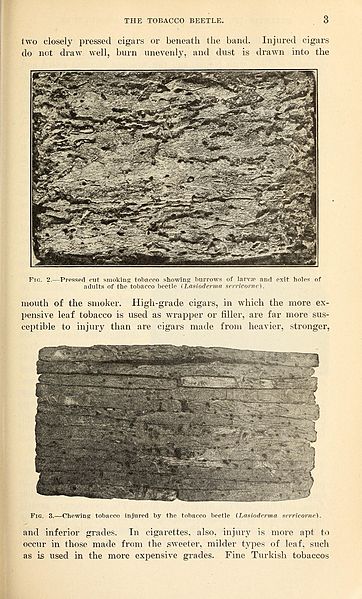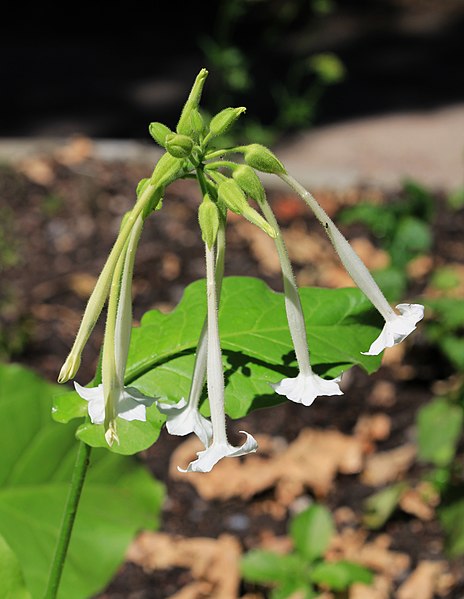Nicotiana attenuata is a species of wild tobacco known by the common name coyote tobacco. It is native to western North America from British Columbia to Texas and northern Mexico, where it grows in many types of habitat. It is a glandular and sparsely hairy annual herb exceeding a meter in maximum height. The leaf blades may be 10 centimetres (4 in) long, the lower ones oval and the upper narrower in shape, and are borne on petioles. The inflorescence bears several flowers with pinkish or greenish white tubular throats 2 to 3 centimetres long, their bases enclosed in pointed sepals. The flower face has five mostly white lobes. The fruit is a capsule about 1 centimetre long.
Nicotiana attenuata
Nicotiana is a genus of herbaceous plants and shrubs in the family Solanaceae, that is indigenous to the Americas, Australia, Southwestern Africa and the South Pacific. Various Nicotiana species, commonly referred to as tobacco plants, are cultivated as ornamental garden plants. N. tabacum is grown worldwide for the cultivation of tobacco leaves used for manufacturing and producing tobacco products, including cigars, cigarillos, cigarettes, chewing tobacco, dipping tobacco, snuff, and snus.
Nicotiana
Cross section of Nicotiana tabacum corolla, showing pistil and stamens
Illustration with photographs of tobacco leaves infested by Lasioderma serricorne (tobacco beetles), from Runner, G. A., The tobacco beetle (1919), Bulletin of the U.S. Department of Agriculture, Biodiversity Heritage Library
Nicotiana sylvestris





